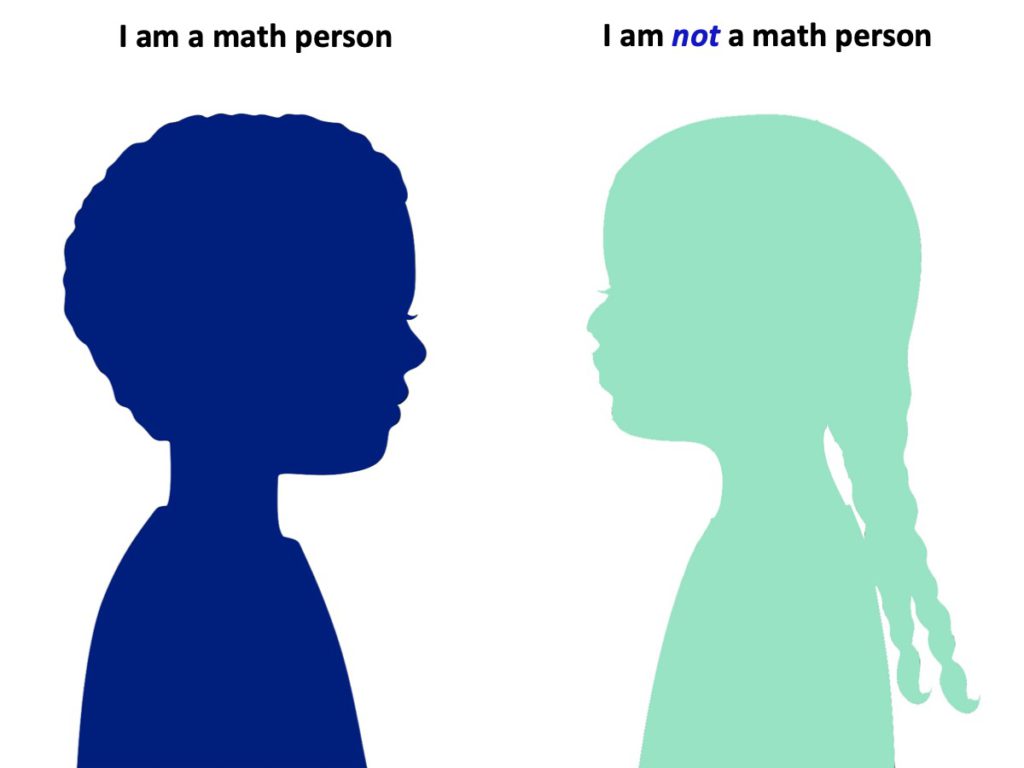
Research shows there are measurable consequences to thinking you are or are not a math person. Students who have a positive self-concept about math (i.e., the idea that “I’m a math person”) tend to do better on math tests. This is true for both boys and girls. We are not consciously aware of implicit thoughts and they are not as easy to measure as explicit self-reports. Yet, these thoughts can still affect student performance.
The math stereotypes children learn are related to children’s emerging math self-concepts. For boys, stronger math-gender stereotypes are related to more positive math self-concepts. That is, boys who think, “math is for boys” tend to also think “I’m a math person.” But girls who think, “math is for boys” tend to think “I am not a math person.” These differences in math self-concept exist even when girls are doing as well as boys in math. Over time, differences in self-concept can lead to differences in math achievement in school.
Girls’ math-gender stereotypes form and become stronger as they acquire the cultural belief that math is more for boys than for girls. When this happens, many girls begin to lose interest in math. How can we boost all children’s motivation in math?
-
- Math-gender stereotype
- a belief that math is for a particular gender, such as girls or boys
- Math self-concept
- the association between the self and math
- Self-concept
- refers to how someone thinks about their self and their attributes